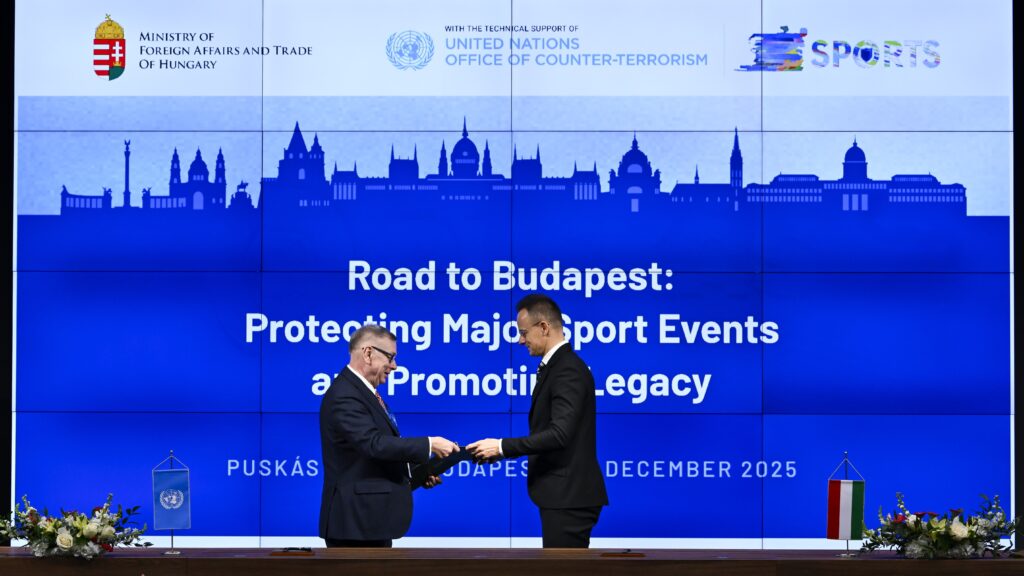On 20 May the Hungarian Parliament voted by a wide margin—134 in favor, 37 against, and 7 abstentions—for Hungary to leave the International Criminal Court (ICC). Minister of Foreign Affairs and Trade Péter Szijjártó will now formally notify the UN Secretary-General of the decision.
By withdrawing from the ICC, the Hungarian government is terminating its 23-year participation in the Rome Statute. While European Union member states remain part of the Court, several countries—including China, Russia, Turkey, Israel, and the United States—have never ratified the agreement. Although Hungary did ratify it, the statute was never incorporated into domestic law.
Hungary Stood By Israel Right Away
The Hungarian government voiced immediate criticism in May 2024, when the ICC announced it was seeking arrest warrants for both Hamas leader Yahya Sinwar in Gaza and Israeli Prime Minister Benjamin Netanyahu on charges of war crimes and crimes against humanity. The ICC prosecution also targeted Israeli Defense Minister Yoav Gallant and two senior Hamas leaders: Mohammed Deif and Ismail Haniyeh, the political head of Hamas. The Hamas leaders have since been killed in Israeli military operations in Gaza.
Hungarian Prime Minister Viktor Orbán called the ICC's decision ‘absurd and shameful’ and promptly invited Netanyahu to Hungary, assuring him that he would be completely safe, as Hungary would not enforce the ICC’s decision.
When Netanyahu arrived in Budapest in April, the head of the Prime Minister’s Office announced Hungary’s decision to withdraw from the ICC. Netanyahu expressed his gratitude to Hungary for standing by Israel in the face of such a disgraceful decision. The Parliament’s vote was part of the formal withdrawal process.
Minister Gergely Gulyás, who leads the Prime Minister's Office, justified the move by saying the Court has strayed from its original mission and become a politically motivated organization, exemplified by the indictment against Prime Minister Netanyahu. He suggested that the Hungarian government finds this process unacceptable and therefore no longer wishes to participate in the Court's work.
After the vote, Minister of Foreign Affairs Péter Szijjártó reiterated that he would soon notify the UN Secretary-General about the decision. He also argued that the ICC has become a politically motivated court, which is unacceptable: ‘Therefore, it's obvious that Hungary has no place in this organization.’
Mounting Scrutiny over ICC Chief’s Motivations
The ICC and its chief prosecutor, Karim Khan, have already faced heavy international criticism—and even sanctions from the US—over the arrest warrants for Israeli leaders. However, a recent Wall Street Journal article suggests that Khan’s decision may have been not only politically motivated but also personally compromised.
The WSJ editorial claims that Khan pursued the warrants to distract from serious misconduct allegations against him, including accusations of sexual assault and abuse of power by a subordinate. The article argues that Khan's process was biased and legally flawed, noting that he refused to hear Israel’s side or visit Gaza, opting instead for a media announcement.
‘The article argues that Khan's process was biased and legally flawed, noting that he refused to hear Israel’s side or visit Gaza’
It criticizes the ICC’s legal authority in this case as well, as Israel is not a member of the court and Palestine is not a recognized state capable of granting jurisdiction, especially over Hamas-controlled Gaza. The piece also asserts that Khan’s actions equate democratic self-defence with terrorism, claiming that the warrants ignore key facts of the Israel–Hamas conflict.
Due to the allegations, Karim Khan has temporarily stepped down, while the United Nations completes its investigation into the alleged sexual misconduct. In the meantime, the ICC’s two deputy prosecutors will take over his responsibilities. This unprecedented move adds uncertainty to the ICC, which is already facing an existential crisis amid US sanctions over its warrants for Israeli officials.
The Wall Street Journal op-ed also concludes that the case against Netanyahu is now irreparably tainted and should not be enforced by any member state.
Related articles:







